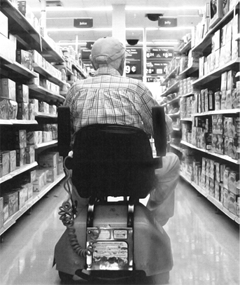By Bob Shepard
 |
In our increasingly mobile society, the fastest-growing segment of the population is also the slowest moving: Over the next few decades, the number of people in the United States over age 65 will double. But a major UAB study has demonstrated that mobility is just as important to older Americans as it is to their younger counterparts. In fact, for the elderly, the ability to keep moving can mean the difference between life and death.
The UAB Study of Aging enrolled a thousand people in five central Alabama counties and followed them for eight years. Over that time, participants who frequently ventured out beyond their homes, without assistance from equipment or another person, were far more likely to remain healthy and independent than those who stayed at home or left only with assistance, says Richard Allman, M.D., principal investigator of the Study of Aging and director of the Birmingham/Atlanta VA Geriatric Research, Education, and Clinical Center and the UAB Center for Aging.
Allman compares the Study of Aging to the famous Framingham Heart Study, which began in 1948 and has provided much of the now common knowledge on the effects of diet, exercise, and medications on heart disease. In the same way, Allman says, UAB's study is “providing the knowledge that will be needed to develop and validate a whole host of possible interventions aimed at giving our aging population a better quality of life.”